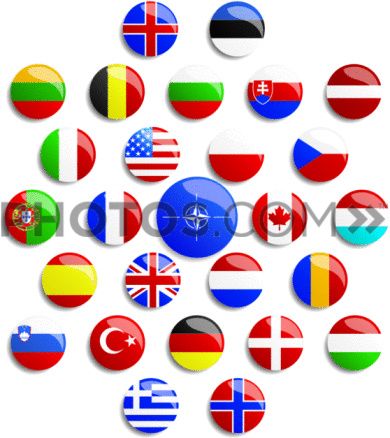Global Warfare: NATO Has Become a Worldwide Military Expeditionary Force

NATO buys the loyalty of sovereign states and in return demands fighting forces that have been engaged on three continents in the last decade, Rick Rozoff, from STOP NATO has told RT.
Video at URL below:
http://rt.com/ op-edge/nato- global-expeditio nary-force- 362/
RT: The terror threat around the world seems to only be growing. Is this the time countries should be relying on NATO?
Rick Rozoff: I don’t think countries have ever relied on NATO for their own security. I think we have to draw a distinction between armed forces as we have traditionally known them, whose main purpose is for territorial defense of their respected homelands, and what has now been fashioned, at least over the last 14 years since the war against Yugoslavia, where NATO has become a global expeditionary military force.
NATO has now waged war on three continents, in Europe in Yugoslavia, in Asia in Afghanistan and in Libya in Africa. So what we’re talking about its not a local, regional North Atlantic military organization that is meant to defend collectively or individually the homelands of the constituent members of NATO. This is now a US-crafted attempt to build history’s first, first of all largest, military bloc of 28 members, with three nuclear powers – nothing like this has ever existed before. When you add the partnership programs with NATO and countries on almost every continent you have something in the neighborhood of 70 nations that are either NATO members or partners; that is well over a third of nations in the world.
The secretary general of NATO Anders Fogh Rasmussen recently made a trip to South Korea. That is the first time ever the head of NATO has visited South Korea and he also went to Japan to consolidate military partnerships with those two countries. Roughly a week ago, Rasmussen’s second-in-command, Deputy Secretary General of NATO Alexander Vershbow openly discussed the possibility of invoking article 5, the mutual military assistance clause, against North Korea in the event of conflict between the two countries, North Korea and the U.S.
RT: Washington is paying some 75 per cent into the Alliance’ s coffers. But isn’t that fair, considering the US is usually calling the shots?
RR: If you’re stating that the US can purchase the political loyalties of countries in conditions of economic destitution, particularly those in Eastern Europe particularly after the collapse of the socialist bloc; let’s recall all the 12 new members of NATO in the post-Cold War period, all incorporated into NATO within one decade, from 1999-2009, are in Eastern Europe. And these are countries have been forced to send troops not only to Afghanistan, to an active war zone where their sons and daughters have killed and died, but were also forced to send troops to Iraq as an indication of their loyalty to NATO.
The fact the US is paying 75 percent of the expenses of NATO is not so surprising considering what the US gets out of it. Other countries have a very dubious claim to be protected by the US, against whom one may ask, except as we notice the rash of military war games occurring in the Baltic Sea, I don’t think we have to ask against whom. It is clear that the build-up in Eastern Europe is aimed particularly at Russia.

